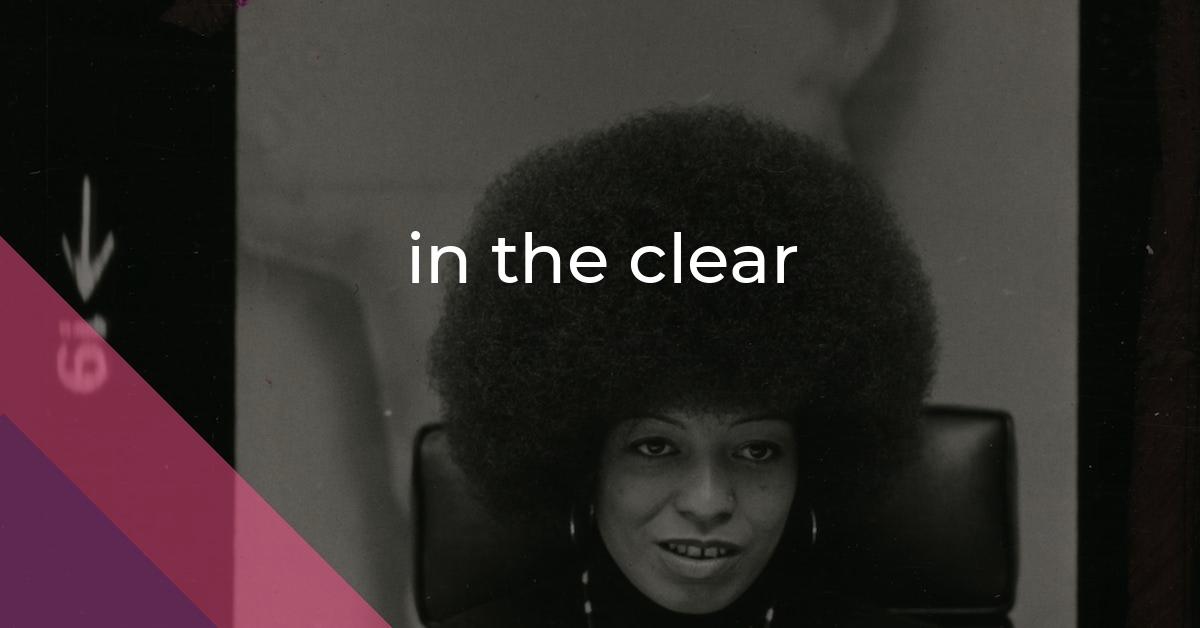in the clear: Idiom Meaning and Origin
What does ‘in the clear’ mean?
"In the clear" means to be out of danger or free from any harm or trouble.

Idiom Explorer
"In the raw" means in a natural or unprocessed state, without any refinements or alterations. It can also refer to being naked or exposed without any cover or protection.
The idiom "in the buff" means being completely naked, without any clothing on.
The idiom "in safe hands" means that someone or something is being taken care of or protected by a trustworthy and capable individual or group.
The idiom "in plain view" means something that is easily visible or noticeable, without any effort to conceal it.
The idiom "in plain sight" means something is easily visible or noticeable to everyone.
The idiom "in no uncertain terms" means to say something in a very clear and direct way without any ambiguity or doubt.
"In evidence" means clearly visible or apparent. It refers to something that can be seen or observed easily and is often used in legal or formal contexts.
The idiom "in black and white" means something is written or documented clearly and explicitly, leaving no room for ambiguity or interpretation.
The idiom "hide in plain sight" means to conceal oneself or something in a way that is not obvious or easily noticed, even though it is in a highly visible or noticeable place.
Unveiling Clarity
The idiom "in the clear" has a clear origin and meaning. It originates from the world of radio and communication. When a radio transmission is clear, it means that the signal is strong and free from any interference or distortion. Therefore, being "in the clear" means to be in a situation where there are no obstacles, problems, or uncertainties. This idiomatic expression draws its meaning from the literal sense of clearness in communication. It has become widely used over time and is easily understood by English speakers.
The idiom "in the clear" is often used in informal conversations, as well as in professional and business settings. It is commonly used to indicate that someone is free from blame, suspicion, or danger. It can also imply that someone has successfully resolved a problem or crossed a hurdle, and is now in a favorable position. For example, someone can be "in the clear" after being accused of a crime and then found innocent. In a different scenario, a person can be "in the clear" after finishing a demanding project with no further responsibilities or worries.
One related idiom is "crystal clear". This phrase is used to describe something that is extremely clear and easy to understand. It is often used when there is no room for interpretation or confusion. For example, if someone gives clear instructions that leave no room for doubt, they can be said to be "crystal clear". In a similar vein, when someone is "in the clear", they have reached a point where there is no ambiguity or uncertainty surrounding their situation.
Another related idiom is "clear cut". This phrase is used to describe something that is straightforward and easily understandable. It is often used when a decision or solution is obvious and requires no further analysis. For example, if someone presents a clear cut argument that leaves no room for alternate interpretations, they can be said to have made their point clearly. In the context of being "in the clear", it suggests that a person has reached a point where there is no doubt or confusion about their status or circumstances.
A third related idiom is "in plain sight". This phrase is used to describe something that is easily visible or noticeable. It is often used when something is not hidden or obscured in any way. For example, if a criminal commits a crime in plain sight, it means that they did it openly and without attempting to conceal their actions. In the context of being "in the clear", it implies that a person is no longer in a hidden or vulnerable position but is now easily visible and safe from harm.
Another interesting aspect of the idiom "in the clear" is its presence in popular culture. It is commonly found in movies, TV shows, and books, where characters use it to convey the idea of being free from danger or trouble. This reinforces its familiarity among English speakers and contributes to its continued usage and understanding.
Overall, the idiom "in the clear" has a well-established meaning and a clear origin. It is an idiomatic expression that has its roots in the world of radio communication. It has evolved to encompass a wide range of situations and is commonly used in both informal and professional settings. Its presence in popular culture further solidifies its usage and understanding. While the idiom may not have any hidden layers of meaning or complex origins, its simplicity and ubiquity make it a valuable phrase in everyday English.
Example usage
Examples of how the idiom "in the clear" can be used in a sentence:
- After submitting all the required documents, she was finally in the clear and could start her new job.
- The detective confirmed that the suspect had an alibi, so he was in the clear and no longer considered a suspect.
- Once he paid off his debts, he felt a sense of relief and knew he was finally in the clear financially.
More "Clear" idioms
We missed the mark - nothing found.



